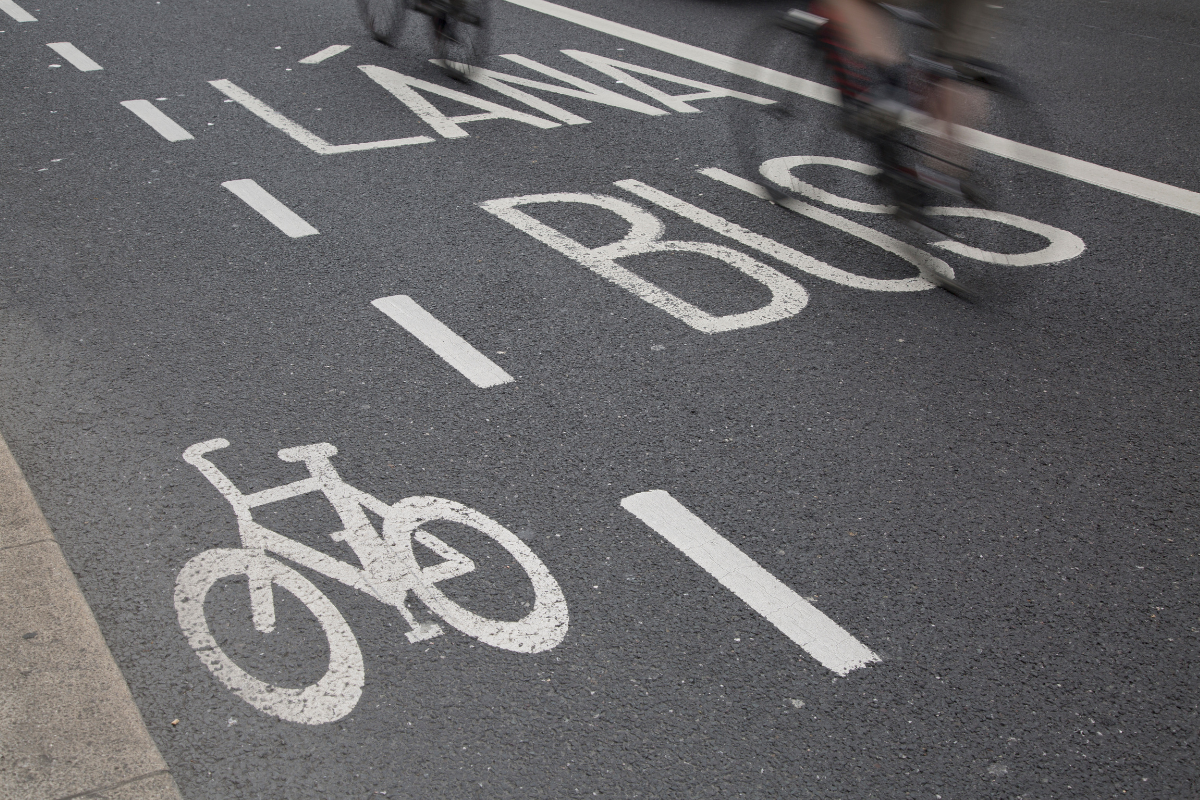
In our ever-evolving world, where climate change and environmental concerns are at the forefront of global discussions, sustainable travel has become a pressing issue. Individuals, communities, and governments worldwide are seeking ways to reduce their carbon footprint and contribute to a greener planet. One significant step towards achieving this goal is by choosing public transport as your primary mode of travel. In this blog post, we will explore how public transport can substantially reduce your carbon footprint and even highlight a remarkable initiative in Ireland known as the NTA's Smarter Travel Mark.
The Green Choice: Public Transport
Public transport systems, including buses, trams, trains, and subways, offer an eco-friendly alternative to private cars. Here's how:
- Reduced Emissions: One of the most compelling reasons to opt for public transport is its ability to significantly reduce greenhouse gas emissions. Unlike private vehicles, public transport options carry multiple passengers, meaning fewer vehicles on the road. This translates to lower overall emissions per passenger mile travelled.
- Energy Efficiency: Public transport vehicles are often designed to be more energy-efficient than personal cars. Many cities are now investing in electric or hybrid buses and trains, further decreasing their environmental impact.
- Congestion Reduction: Public transport can help alleviate traffic congestion, which not only saves time but also reduces the stop-and-go traffic patterns that are less fuel-efficient and emit more pollutants.
- Encourages Sustainable Cities: Cities with well-developed public transport systems tend to have more compact and sustainable urban development. This reduces the need for long commutes and encourages walking, cycling, and the use of public transport for daily activities.
- Promotes Green Practices: Many public transport authorities are actively adopting green practices by incorporating renewable energy sources, implementing eco-friendly technologies, and reducing waste.
The NTA's Smarter Travel Mark: A Shining Example
The National Transport Authority (NTA) has taken a significant step towards promoting sustainable travel through the Smarter Travel Mark initiative. This program aims to recognise and reward organisations, schools, and campuses that demonstrate a commitment to sustainable travel practices.
The Smarter Travel Mark encourages entities to:
- Promote Alternatives: Encourage employees or students to choose sustainable travel options, such as walking, cycling, or using public transport, by providing incentives or infrastructure support.
- Reduce Car Dependence: Develop strategies to reduce car dependence among their community members, leading to fewer single-occupancy vehicles on the road.
- Enhance Facilities: Invest in bike racks, pedestrian-friendly infrastructure, and other amenities that make sustainable travel more accessible and appealing.
- Raise Awareness: Promote awareness about the environmental benefits of sustainable travel and the positive impact it can have on reducing carbon emissions.
By participating in the Smarter Travel Mark program, organisations and institutions in Ireland can contribute to the nation's efforts to combat climate change and create greener, more sustainable communities.
Learn more about the NTA's Smarter Travel Mark and how your organisation can take steps towards reducing your carbon footprint.
Top Reasons for Companies to Encourage Sustainable Transport Options
- Environmental Responsibility: Promoting sustainable transport options aligns with a company's commitment to environmental responsibility. By reducing the number of single-occupancy vehicles on the road, businesses can contribute to lower greenhouse gas emissions and combat climate change.
- Cost Savings: Encouraging employees to use public transport, carpool, or opt for eco-friendly commuting options like cycling can lead to significant cost savings for both the company and its workers. Reduced fuel expenses, parking costs, and wear and tear on personal vehicles translate to financial benefits.
- Improved Employee Well-being: Sustainable transport options, such as cycling or walking, promote physical activity and a healthier lifestyle. When employees have the opportunity to incorporate exercise into their daily routine, it can lead to improved overall well-being, reduced stress, and increased productivity.
- Reduced Traffic Congestion: By reducing the number of employees commuting by car, companies can play a part in alleviating traffic congestion. This not only benefits their employees by reducing commute times but also helps foster a more efficient and productive work environment.
- Positive Corporate Image: Demonstrating a commitment to sustainable transport can enhance a company's reputation. It signals that the organisation is socially responsible and environmentally conscious, which can attract eco-minded customers and talent.
TravelHub: A Convenient Solution
One innovative platform that facilitates sustainable transport options for employees is TravelHub (accessible at www.travelhub.ie). TravelHub is a comprehensive travel management system that helps employees plan and manage their commutes efficiently.
Cost Savings with the Bike to Work Scheme and Taxsaver Ticket Scheme
The Bike to Work Scheme and the Taxsaver Ticket Scheme are two excellent examples of initiatives that promote sustainable commuting while providing substantial cost savings to employees.
- Bike to Work Scheme: This program allows employees to purchase a bicycle and related equipment through salary sacrifice, effectively reducing their taxable income. By participating in the scheme, employees can save money on the cost of a bicycle, making it an attractive option for those considering cycling as their primary mode of commuting. Not only does it save employees money, but it also encourages physical activity and reduces carbon emissions.
- Taxsaver Ticket Scheme: The Taxsaver Ticket Scheme allows employees to purchase public transport tickets, such as monthly or annual bus or train passes, through salary deduction before tax. This results in significant savings as the cost of these tickets is deducted from the employee's pre-tax income. It's a win-win situation, as employees save on transportation expenses, and companies reduce their payroll taxes.
Incorporating these schemes into their employee benefits packages demonstrates a company's commitment to promoting sustainable transport while helping employees enjoy cost-effective commuting options. Encouraging participation in these initiatives not only benefits the environment but also contributes to the financial well-being and job satisfaction of employees. Companies that embrace such programs can foster a positive workplace culture while making a meaningful impact on sustainability.
Sustainable travel through public transport is a powerful way to reduce your carbon footprint and contribute to a cleaner, healthier planet.


